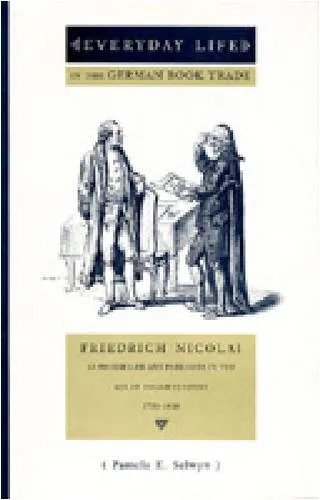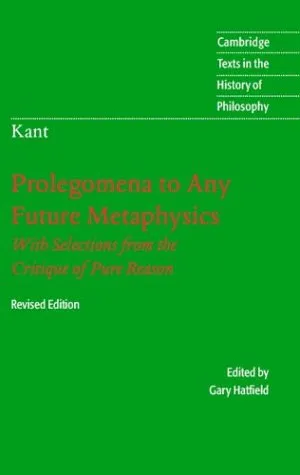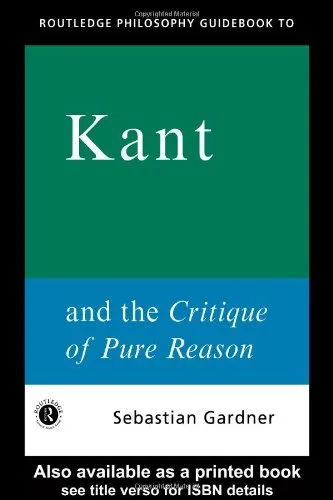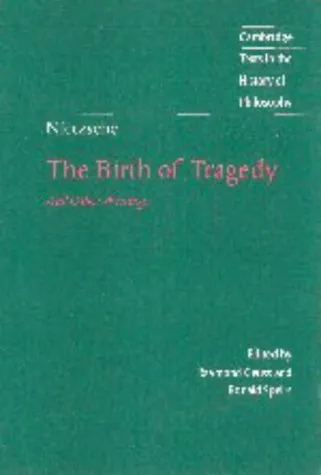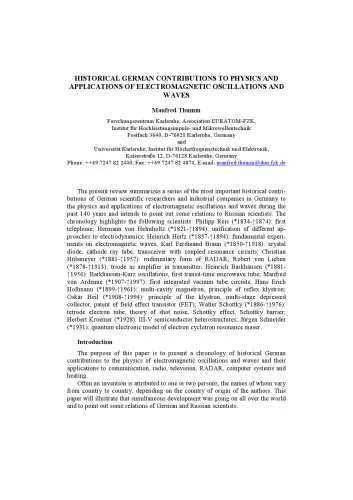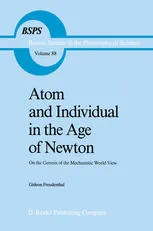Everyday Life in the German Book Trade: Friedrich Nicolai As Bookseller and Publisher in the Age of Enlightenment 1750-1810 (Penn State Series in the History of the Book)
4.0
بر اساس نظر کاربران

شما میتونید سوالاتتون در باره کتاب رو از هوش مصنوعیش بعد از ورود بپرسید
هر دانلود یا پرسش از هوش مصنوعی 2 امتیاز لازم دارد، برای بدست آوردن امتیاز رایگان، به صفحه ی راهنمای امتیازات سر بزنید و یک سری کار ارزشمند انجام بدینکتاب های مرتبط:
معرفی کتاب: زندگی روزمره در صنعت کتاب آلمان - فریدریش نیکلای بهعنوان کتابفروش و ناشر در عصر روشنگری (1750-1810)
کتاب Everyday Life in the German Book Trade: Friedrich Nicolai As Bookseller and Publisher in the Age of Enlightenment 1750-1810 اثری است که توسط پاملا ایو سلون به رشته تحریر درآمده است. این کتاب به بررسی زندگی و فعالیتهای فریدریش نیکلای، یکی از برجستهترین چهرههای صنعت نشر و کتابفروشی آلمان در دوران روشنگری، میپردازد. این اثر که در Penn State Series in the History of the Book منتشر شده است، نمایشی عمیق از تاریخ فرهنگی کتاب در اروپا ارائه میدهد و پیامدهای روشنگری را از دریچه نقش کتاب و نشر بررسی میکند.
خلاصهای جامع از کتاب
کتاب بر اهمیت نهادهای فرهنگی در شکلگیری اندیشههای روشنگری متمرکز است و نقش پراهمیت فریدریش نیکلای بهعنوان یک ناشر، نویسنده، و متفکر را در این زمینه روشن میکند. نیکلای یکی از بازیگران کلیدی صنعت چاپ و نشر در برلین قرن هجدهم میلادی بود. فعالیتهای او نه تنها در تحول نشر و کتابخانهها بلکه در گسترش فلسفه روشنگری نیز تأثیر بهسزایی داشت.
این کتاب به شیوهای مستند و دقیق، به بررسی چالشها و فرصتهای مرتبط با حرفه نشر در عصر روشنگری میپردازد. نویسنده از تعامل پیچیده میان نویسندگان، ناشران، و مخاطبان در این دوران پرده برمیدارد و جزئیات بیشتری از زندگی شخصی و حرفهای نیکلای، از جمله راهبردهای تجاری او، سیاستهای چاپ و همفکری او با اندیشمندان معاصر بررسی میکند.
یافتههای کلیدی
- درک اهمیت روشنگری بهعنوان یک جنبش فراتر از فلسفه و سیاست، در حوزه فرهنگ و ارتباطات.
- شناسایی چالشهای اساسی که ناشران در برابر سانسور، جنگ و بحرانهای اقتصادی تجربه میکردند.
- تحول تجارت کتاب بهعنوان یک حرفه؛ از فروش کتابهای دستدوم تا تبدیل شدن به یک تجارت بینالمللی مدرن.
- نقش کتاب در توزیع ایدههای روشنگری و گسترش دانش میان اقشار مختلف جامعه.
جملات معروف از کتاب
“The production and distribution of books shaped not only the literary culture of the Enlightenment but also the economic and social fabric of early modern Europe.”
“Friedrich Nicolai’s career exemplifies the power of the book trade as an agent of intellectual change and commercial evolution.”
چرا این کتاب اهمیت دارد؟
این کتاب علاوه بر بررسی زندگی و حرفه فریدریش نیکلای، پل ارتباطی میان تاریخ فرهنگی، اقتصادی و اجتماعی اروپا در دوران روشنگری و توسعه صنایع فرهنگی مدرن است. نقش نیکلای بهعنوان ناشری که ارزشهای روشنفکری و تجاری را با مهارت ترکیب کرد، نه تنها درک جدیدی از تاریخ صنعت نشر به ما ارائه میدهد، بلکه تصویری فراگیر از اهمیت ایدهها، ارتباطات و کتاب در ایجاد تغییرات اجتماعی به نمایش میگذارد. این اثر همچنین برای پژوهشگران تاریخ کتاب، علاقهمندان به روشنگری و خوانندگان جدی که به توسعه صنعت انتشاراتی عاشقانه مینگرند، منبعی بینظیر است.
Introduction to "Everyday Life in the German Book Trade"
"Everyday Life in the German Book Trade: Friedrich Nicolai As Bookseller and Publisher in the Age of Enlightenment 1750-1810" delves deep into the life and career of Friedrich Nicolai, one of the most significant figures of the German Enlightenment. This meticulously researched book provides an illuminating account of Nicolai's contribution to the book trade and intellectual culture of 18th- and early 19th-century Germany. Part biography, part cultural history, this book explores Nicolai’s role as a bookseller and publisher while painting a vivid picture of the intertwined worlds of commerce, literature, and ideas during the Age of Enlightenment.
Pamela Eve Selwyn brings the past to life by not only chronicling Nicolai’s professional achievements but also offering insights into the daily operations of the book trade during one of the most transformational periods in European history. Whether you are a historian, bibliophile, or curious reader, this work provides a captivating exploration of a pivotal era in book history and cultural production.
Detailed Summary of the Book
Nicolai was more than just a bookseller—he was a pivotal figure, deeply involved in shaping the intellectual debates of his time. This book begins by setting the stage with an overview of 18th-century Germany, a region marked by a burgeoning print culture and the spread of Enlightenment ideals. It details how Nicolai, born into a family of printers, took over his father’s business in Berlin and transformed it into one of the most important publishing houses in the country.
Selwyn illustrates how Nicolai’s work was far-reaching, intersecting with the careers of prominent thinkers like Gotthold Ephraim Lessing, Moses Mendelssohn, and Immanuel Kant. Nicolai’s publishing house became a hub for Enlightenment ideas, producing critical works that challenged traditional religious and political authorities. In addition, the book examines Nicolai’s role as editor of the Allgemeine Deutsche Bibliothek, a widely respected literary review that helped shape public opinion and promote high intellectual standards.
Through careful examination of business records, correspondence, and publications, Selwyn recreates the daily life of a bookseller in Nicolai’s era. From the logistics of book production and distribution to the interactions between publishers, writers, and the reading public, the book reveals the intricate workings of the German book trade. Nicolai’s commitment to meritocracy and providing a platform for diverse voices is a recurring theme throughout this work.
Key Takeaways
- Friedrich Nicolai was instrumental in spreading Enlightenment ideals through the German-speaking world.
- The book trade in the 18th century was a complex network requiring collaboration between booksellers, printers, authors, and readers.
- Nicolai's publishing house exemplified how print media could serve as a tool for societal change and the democratization of knowledge.
- Despite the challenges posed by censorship and political unrest, Nicolai’s dedication to free thought in publishing had a lasting impact.
- The Enlightenment wasn’t just an intellectual movement—it was supported and propelled by material networks like the book trade.
Famous Quotes from the Book
"The book was not only a product of its time but also a shaper of its time, distributing ideas and connecting disparate communities through the power of print."
"For Nicolai, books were more than commodities—they were instruments of social and intellectual progress."
Why This Book Matters
This book underscores the importance of understanding historical contexts for modern practices in publishing and intellectual culture. By examining Friedrich Nicolai’s contributions to the German Enlightenment, Selwyn offers insights into how ideas take root and spread through society. The book serves as a reminder that books are more than objects—they are vessels for societal change and intellectual innovation.
For scholars, readers, and anyone intrigued by the history of books, "Everyday Life in the German Book Trade" provides a compelling examination of the forces that shaped modern intellectual life. It highlights the human stories behind the circulation of ideas, exploring how individuals like Nicolai harnessed the transformative power of the printed word to challenge norms and push boundaries.
دانلود رایگان مستقیم
شما میتونید سوالاتتون در باره کتاب رو از هوش مصنوعیش بعد از ورود بپرسید
دسترسی به کتابها از طریق پلتفرمهای قانونی و کتابخانههای عمومی نه تنها از حقوق نویسندگان و ناشران حمایت میکند، بلکه به پایداری فرهنگ کتابخوانی نیز کمک میرساند. پیش از دانلود، لحظهای به بررسی این گزینهها فکر کنید.
این کتاب رو در پلتفرم های دیگه ببینید
WorldCat به شما کمک میکنه تا کتاب ها رو در کتابخانه های سراسر دنیا پیدا کنید
امتیازها، نظرات تخصصی و صحبت ها درباره کتاب را در Goodreads ببینید
کتابهای کمیاب یا دست دوم را در AbeBooks پیدا کنید و بخرید
1307
بازدید4.0
امتیاز0
نظر98%
رضایتنظرات:
4.0
بر اساس 0 نظر کاربران
Questions & Answers
Ask questions about this book or help others by answering
No questions yet. Be the first to ask!
